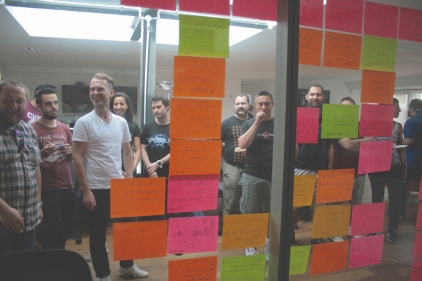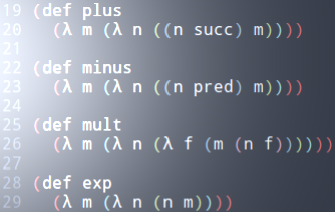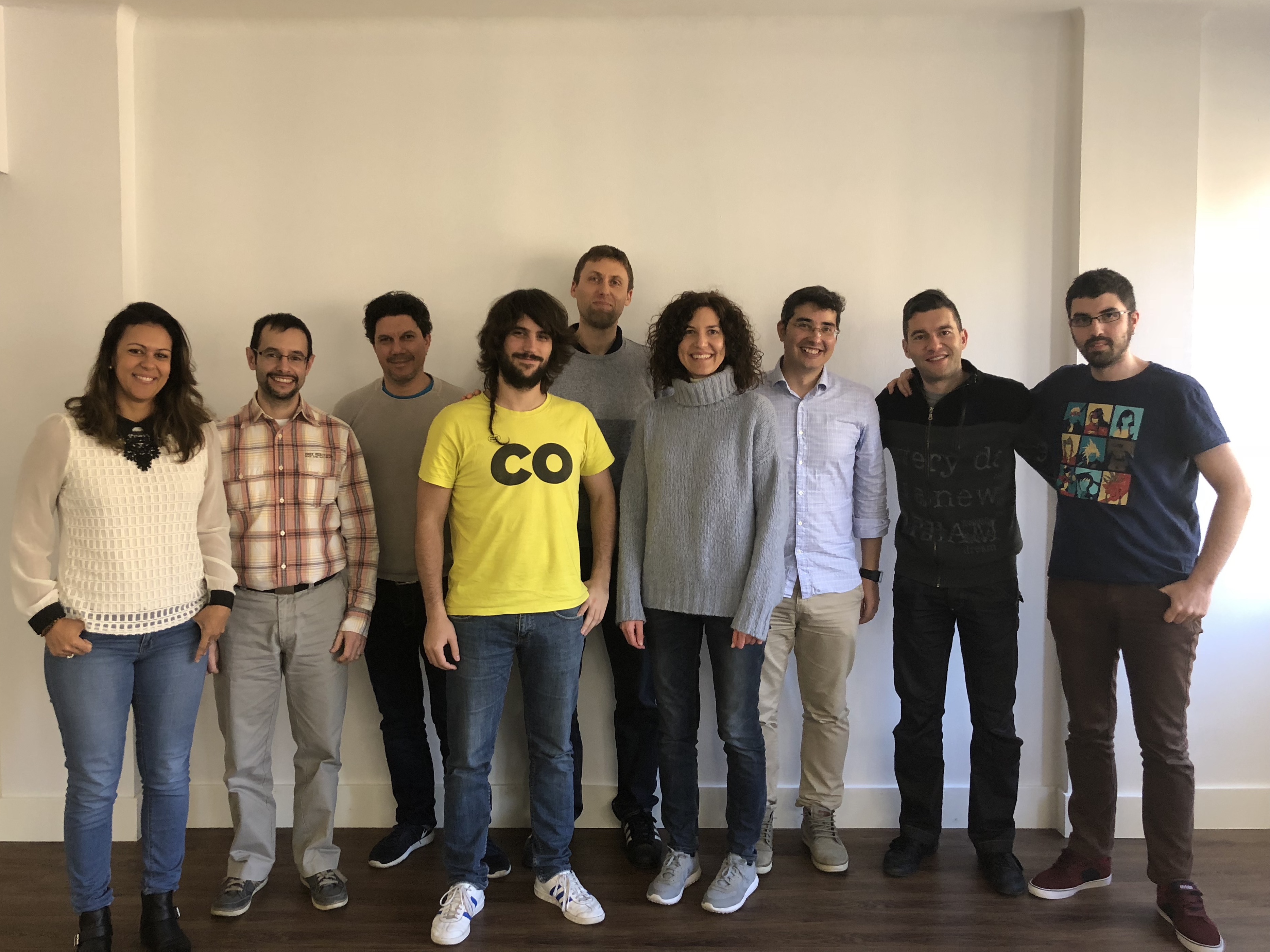CAREER OPEN HOUSE | 31st Jan, 7pm
We’re hiring Java and .NET Craftspeople in London & Barcelona. Come and meet us at our Career Open House on 31st January to learn more.
Testing legacy: Hard-wired dependencies (part 1)
- By Sandro Mancuso
- Posted 16 Jul 2011
When pairing with some developers, I've noticed that one of the reasons they are not unit testing existing code is because, quite often, they don't know how to overcome certain problems. The most common one is related to hard-wired dependencies - Singletons and static calls.
Let's look at this piece of code:
public List<Trip> getTripsByUser(User user) throws UserNotLoggedInException {
List<Trip> tripList = new ArrayList<Trip>();
User loggedUser = UserSession.getInstance().getLoggedUser();
boolean isFriend = false;
if (loggedUser != null) {
for (User friend : user.getFriends()) {
if (friend.equals(loggedUser)) {
isFriend = true;
break;
}
}
if (isFriend) {
tripList = TripDAO.findTripsByUser(user);
}
return tripList;
} else {
throw new UserNotLoggedInException();
}
}
Horrendous, isn't it? The code above has loads of problems, but before we change it, we need to have it covered by tests.
There are two challenges when unit testing the method above. They are:
User loggedUser = UserSession.getInstance().getLoggedUser(); // Line 3
tripList = TripDAO.findTripsByUser(user); // Line 13
As we know, unit tests should test just one class and not its dependencies. That means that we need to find a way to mock the Singleton and the static call. In general we do that injecting the dependencies, but we have a rule, remember?
We can't change any existing code if not covered by tests. The only exception is if we need to change the code to add unit tests, but in this case, just automated refactorings (via IDE) are allowed.
Besides that, many of the mocking frameworks are not be able to mock static methods anyway, so injecting the TripDAO would not solve the problem.
Overcoming the hard-dependencies problem
NOTE: In real life I would be writing tests first and making the change just when I needed but in order to keep the post short and focused. I will not go step by step here.
First of all, let's isolate the Singleton dependency on it's own method. Let's make it protected as well. But wait, this need to be done via automated "extract method" refactoring. Select just the following piece of code on TripService.java:
UserSession.getInstance().getLoggedUser()
Go to your IDE's refactoring menu, choose extract method and give it a name. After this step, the code will look like the following:
public class TripService {
public List<Trip> getTripsByUser(User user) throws UserNotLoggedInException {
...
User loggedUser = loggedUser();
...
}
protected User loggedUser() {
return UserSession.getInstance().getLoggedUser();
}
}
Doing the same thing for TripDAO.findTripsByUser(user), we will have:
public List<Trip> getTripsByUser(User user) throws UserNotLoggedInException {
...
User loggedUser = loggedUser();
...
if (isFriend) {
tripList = findTripsByUser(user);
}
...
}
protected List<Trip> findTripsByUser(User user) {
return TripDAO.findTripsByUser(user);
}
protected User loggedUser() {
return UserSession.getInstance().getLoggedUser();
}
In our test class, we can now extend the TripService class and override the protected methods we created, making them return whatever we need for our unit tests:
private TripService createTripService() {
return new TripService() {
@Override
protected User loggedUser() {
return loggedUser;
}
@Override
protected List<Trip> findTripsByUser(User user) {
return user.trips();
}
}
}
And this is it. Our TripService is now testable.
First we write all the tests we need to make sure the class/method is fully tested and all code branches are exercised. I use Eclipse's eclEmma plugin for that and I strongly recommend it. If you are not using Java and/or Eclipse, try to use a code coverage tool specific to your language/IDE while writing tests for existing code. It helps a lot.
So here is the my final test class:
public class TripServiceTest {
private static final User UNUSED_USER = null;
private static final User NON_LOGGED_USER = null;
private User loggedUser = new User();
private User targetUser = new User();
private TripService tripService;
@Before
public void initialise() {
tripService = createTripService();
}
@Test(expected = UserNotLoggedInException.class)
public void shouldThrowExceptionWhenUserIsNotLoggedIn() throws Exception {
loggedUser = NON_LOGGED_USER;
tripService.getTripsByUser(UNUSED_USER);
}
@Test
public void shouldNotReturnTripsWhenLoggedUserIsNotAFriend() throws Exception {
List<Trip> trips = tripService.getTripsByUser(targetUser);
assertThat(trips.size(), is(equalTo(0)));
}
@Test
public void shouldReturnTripsWhenLoggedUserIsAFriend() throws Exception {
User john = anUser().friendsWith(loggedUser).withTrips(new Trip(), new Trip()).build();
List<Trip> trips = tripService.getTripsByUser(john);
assertThat(trips, is(equalTo(john.trips())));
}
private TripService createTripService() {
return new TripService() {
@Override
protected User loggedUser() {
return loggedUser;
}
@Override
protected List<Trip> findTripsByUser(User user) {
return user.trips();
}
}
}
}
Are we done?
Of course not. We still need to refactor the TripService class. Check the part two of this post.
If you want to give it a go, here is the full code: https://github.com/sandromancuso/testing_legacy_code

We're hiring!
Enjoying this article?
Recent Blogs
Lambda Calculus in Clojure (Part 2)
- Sergio Rodrigo Royo
One Year of Codurance Barcelona
- Guillem Fernandez
Functions
- Christian Panadero Martinez
Applicative Functors and data validation, part II
- Carlos Morera de la Chica
Living a Coderetreat as a facilitator
- Raquel M Carmena
Tetris - Failed Experiment: Next Steps
- Dan Cohen

Software is our passion.
We are software craftspeople. We build well-crafted software for our clients, we help developers to get better at their craft through training, coaching and mentoring, and we help companies get better at delivering software.
Latest Blogs
One Year of Codurance Barcelona...
Functions
Useful Links
Contact Us
London EC1V 0JR
Phone: +44 207 4902967
Carrer Aragó, 208
08011, Barcelona
Phone: +34 689 723 737
Email: hello@codurance.com







